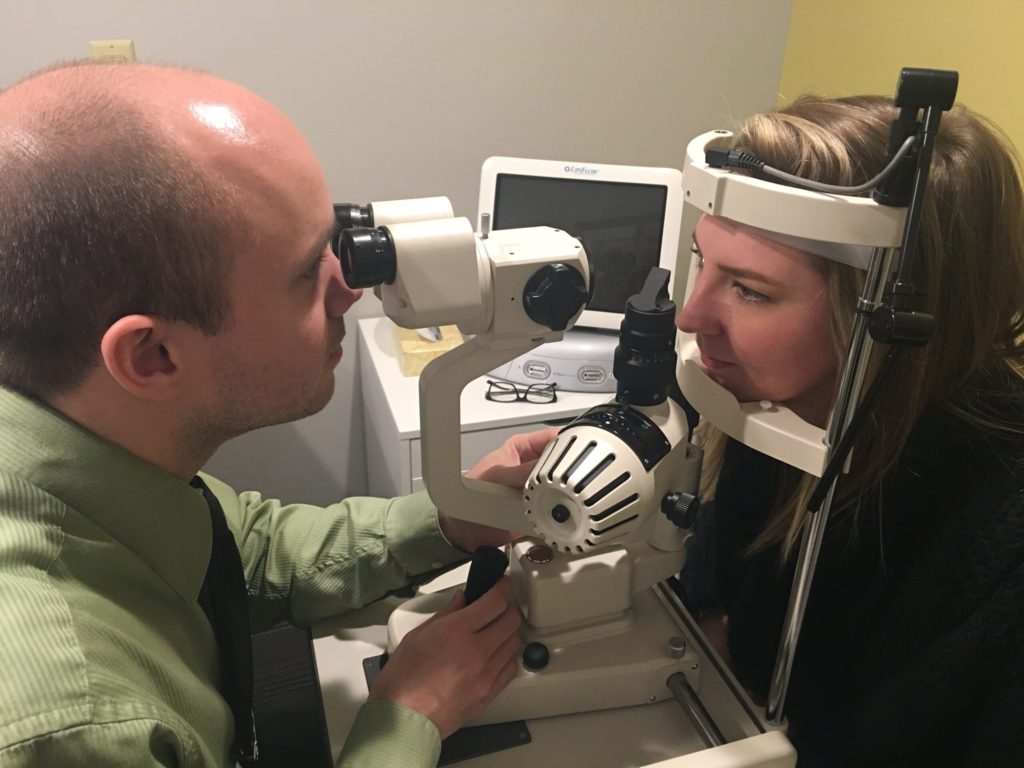[cmsmasters_row][cmsmasters_column data_width=”1/1″][cmsmasters_text]
Our sense of vision is a wonderfully beautiful and complex part of our everyday life. On an average day it may be easy to take it for granted, but it’s important to take time to recognize what makes all of that beauty possible—our eyes!We’d like to celebrate our fascinating eyes by sharing with you some fun eye trivia. Here are a few interesting facts about your eyes that you may not know!
6 Outstanding Eye Facts
1. If your eyes are blue, you share a common ancestor with every other blue-eyed individual in the world. Early humans all had brown eyes, until someone developed a genetic mutation that made their eyes blue.
2. Eyes use about 65 percent of our brainpower, more than any other part of the body. Proof that the eye is one of the most complex organs we have!
3. “Red eye” in photos occurs when light from a camera flash bounces off the back of the eye. The choroid layer at the back of the eye is rich in blood vessels. Light reflecting off of it makes the eye appear red!
4. Newborns don’t produce tears. Babies may make crying sounds, but actual tears don’t start flowing until they are between four and 13 weeks old.
5. The muscles that control your eyes are the most active out of all the muscles in your body. Your eyes are constantly making tiny jerking movements called “microsaccades.” Even when you think you’re staring at something unflinchingly, your eyes are actually moving involuntarily.
6. Eyes see an average of 24 million different images in a lifetime. 24 million! Take it all in.
More Than Meets The Eye
Our eyes are far more impressive than we know. Scientists and researchers are discovering amazing new things about our eyes and bodies every day! We can all care for our vision and whole body health by eating a nutritious diet, exercising regularly, and protecting ourselves from harmful substances and activities.
Thank you for your continued loyalty to our practice. We love our patients!
Find out more here!
The content on this blog is not intended to be a substitute for professional medical advice, diagnosis, or treatment. Always seek the advice of qualified health providers with questions you may have regarding medical conditions.
[/cmsmasters_text][/cmsmasters_column][/cmsmasters_row]




